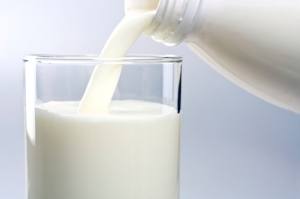Editor’s Note: To read about the dangers of aspartame, see: Why Aspartame is FAR Worse than High Fructose Corn Syrup [1]
FDA Requests Comments on Petition to Allow Aspartame in Milk
by Bethany R. Kennedy, Esq.
Emord.com
In 2009, the International Dairy Foods Association (“IDFA”) and the National Milk Producers Federation (“NMPF”) jointly submitted a petition to FDA requesting that the agency amend standard of identity regulations to allow the use of “any safe and suitable” sweetener in optional characterizing flavoring ingredients added to milk (e.g., chocolate flavoring added to milk) and 17 other milk and cream products. In particular, the IDFA and NMPF want to be allowed to use non-nutritive sweeteners, such as aspartame, in lieu of the nutritive sweeteners currently allowed, such as sugar.
IDFA and NMPF assert that the use of non-nutritive sweeteners can promote more healthful eating practices and decrease child obesity because children are more likely to drink milk if it is flavored, and milk flavored with non-nutritive sweeteners has fewer calories than milk flavored with nutritive sweeteners.
If FDA amends its regulations in accordance with the petition, a product could be labeled as “milk” without any further qualifications, even if it contains a non-nutritive sweetener that was added for flavoring. Under FDA’s current regulations, non-nutritive sweeteners can be used for optional characterizing flavoring in milk but such products must make use of a nutrient content claim and a standardized term, e.g., “reduced calorie,” on its label. 21 C.F.R. § 130.10(d).
IDFA and NMPF object to using claims like “reduced calorie” because they believe claims like that are not attractive to children. They also argue that consumers can more easily identify the nutritional value of milk flavored with non-nutritive sweeteners if labels do not bear such claims because consumers do not recognize that milk, including flavored milk, contains sugar.
Milk, including that used as a source for infant formulas, is expected by consumers to be naturally sweetened unless some aspect of labeling alerts them to an alteration wherein artificial sweeteners are included as an additive or alternative to natural sweeteners. If identity labeling is altered as requested, a two-fold problem will arise. Not only will artificial sweeteners become far more commonplace (because of their relative inexpensiveness) but also consumers accustomed to purchasing milk products without them will acquire the products largely ignorant of the change. That is a sleight of hand that FDA should reject. Will the agency favor industry over consumers? We shall see.
Without nutrient content claims differentiating milk flavored with nutritive sweeteners from milk flavored with non-nutritive sweeteners, consumers will have to take time to stop and read the ingredient list to determine if the milk contains sugar or aspartame. Unalerted to a change in content by prominent labeling on the product’s display panel, most consumers who have purchased naturally sweetened milk will not notice the change to artificial sweeteners.
Moreover, artificial sweeteners have been plagued by reports of adverse events. Consequently, the substitution is not one carrying with it no risk of injury. We may therefore expect an increased incidence of such adverse events and greater harm to specific populations that are at peculiar risk when consuming artificial sweeteners.
On February 20, 2013, FDA published a notice in the Federal Register requesting “comments, data, and information about the issues presented in the petition[.]” 78 Fed. Reg. 11791 (Feb. 22, 2013). For example, FDA requested comments and data on the following issues:
1) Whether the proposed amendment will promote honesty and fair dealing in the interest of consumers?
2) Is inclusion of non-nutritive sweeteners in the ingredient statement alone sufficient to ensure that consumers are not misled about the characteristics of the milk they are purchasing?
3) What data, if any, is available on children’s purchasing habits regarding flavored milk bearing claims like “reduced calorie flavored milk,” “no sugar added”, “less sugar,” and etc.?
Comments are due by May 21, 2013.
Instructions on how to comment are here [2].
Read the Full Article Here: http://emord.com/blawg/fda-requests-comments-on-petition-to-allow-aspartame-in-milk/ [3]
Global Censorship of Health Information
The Politics of Controlling Therapeutic Information to Protect State-Sponsored Drug Monopolies
by Attorney Jonathan Emord
Free Shipping available! [4]

